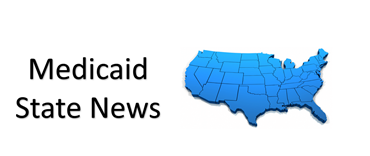MM Curator summary
GA legislators have approved increased funding for MH/BH.
The article below has been highlighted and summarized by our research team. It is provided here for member convenience as part of our Curator service.
The state’s top House Republican says his chamber’s version of the $27.3 billion state budget makes a new, significant investment in Georgians’ mental and behavioral health needs. But Democrats say Georgians need much more health spending in general.
For House Speaker David Ralston, R-Blue Ridge, one of the highlights of the state House budget is $58 million in new or restored state spending on the needs of folks who have behavioral health challenges or developmental disabilities. Earlier this year, he had announced those services would be a House priority this year in spending and legislation, after a 2020 study commission.
The House’s total budget is just about same amount as that of Republican Gov. Brian Kemp. But the House “found” some money for its priorities by trimming a couple of places like economic development and accounting for the feds’ willingness to pay a greater percent of Medicaid costs during COVID-19.
So the House’s proposed $58 million will pay for things like services for 2,100 more people who have addictive diseases and mental health services for some 5,200 more Georgians. Pending approval from the federal government, the House budget would also increase the rates the state pays to intellectual and developmental disability providers. And it includes $7 million in annual funding for a behavioral health crisis center for people who have intellectual and developmental disabilities.
“Part of our work is to remove the stigma from seeking help for behavioral health or developmental disability services. It is nothing to be ashamed of and it is nothing to hide from if you need help,” Ralston said at a press conference Friday, just after his chamber passed the budget, 136-31.
Georgia’s spending has long been conservative, too conservative for Democrats. Hence the ‘no’ votes. It took years for state spending per Georgian to recover to what it was before the 2008 Great Recession, for example.
And many cuts made last year in preparation for a recession this year are still in the budget — even though state tax revenue has been healthy. K-12 education is set for an appropriation of about $10.2 billion. Two years ago, it was $10.6 billion.
Even some Republicans think state has been a little too tight and that it needs to do things like increase state staff salaries to try and keep folks from quitting.
All year, Democrats have been urging the majority Republicans to draw down the state’s $2.5 billion-plus rainy day fund for the things pandemic-ravaged Georgians need today and in the near future.
Ralston said the state needs to be “cautious” about drawing from the rainy day fund and that he appreciates the “measured” approach to the rainy day fund in Kemp’s version of the draft budget. Memories are probably still there of the Great Recession, when the rainy day fund went down to a frightening $103 million.
However, Democratic state Rep. Jasmine Clark of Lilburn said that at this point, Georgia is socking money in a bank instead of filling its empty fridge.
She doubled down on a policy Democrats have sought for years: expansion of Medicaid to more low-income Georgians. The state would pay for a share of that and the feds would pay a share.
Expansion would “provide billions in matching funds and give hundreds of thousands of Georgians access to health care and save rural hospitals from shuttering their doors,” Clark said on the House floor Friday.
To make that point, House Democrats tried an almost unheard of parliamentary maneuver: adding Medicaid expansion to the budget bill via House floor amendment. Not surprisingly, that move failed, 68-98. Republicans have for years said an expansion would be too costly.
Gov. Kemp’s draft budget for the year that will begin in July is fairly similar in proportion to the House version.
So, overall, the House’s budget proposal and that of the governor are very similar to recent years: the most money for education and health. In fact, if the whole budget were $1, more than 50 cents would go to those two areas.
The state Senate will come up with their own draft budget in the coming weeks. Then the House, Senate and governor must come to some consensus budget by March 31.
Documents:
House budget documents
Gov. Brian Kemp’s budget documents

